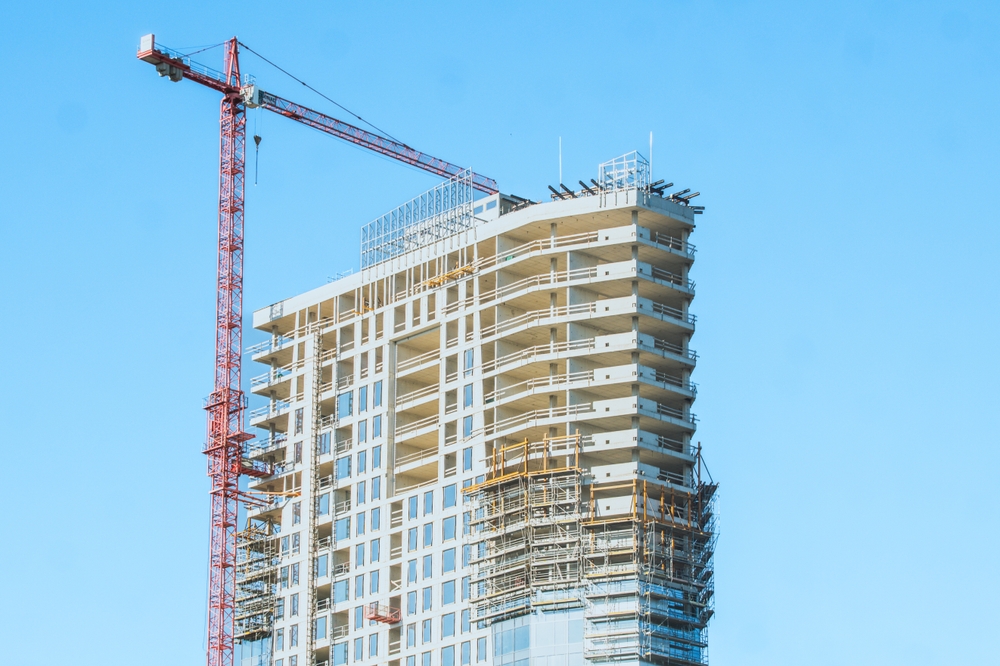With the growing popularity of strata living, it remains essential for strata managers to stay informed about the latest developments and trends.

In a recent SCA (NSW) Webinar, industry experts Frank Boross (CEO of Havencab Property Group), Leanne Habib (SCA (NSW) Board Member), Rod Smith (SCA (NSW) Board Member) and Gary Sharma (Director of Operations, Facility Management at Havencab) shared their expertise on the current state of development in NSW and provided key takeaways for strata managers working with developers.
Key drivers shaping strata development in NSW
Strata living is on the rise, and there are four main factors shaping development in NSW:
- Interest rates – These continue to affect the cost of development and property affordability.
- Immigration – Growing population numbers mean increased demand for housing.
- Population growth – The state’s population of 8.1 million is expected to continue growing current in the coming years.
- Urban planning – Government policies around zoning and land use are influencing where and how development takes place.
In fact, the NSW Government estimates that 377,000 new dwellings will be created by June 2029. This growth will have a direct impact on the strata sector, requiring a higher supply of strata managers.
Why should you engage with developers early?
As a strata manager, engaging with developers early in the process is important to ensure the smooth operation of the strata scheme once the development is completed. Here are three reasons why early engagement is important:
1. Understand the developer’s vision
- What is the developer trying to achieve with this project?
- Is the development being delivered in stages, and what does each stage entail?
- Request sales contracts, marketing materials and other relevant documentation to understand the scope of the development.
2. Engage with the developer
- Review plans and assess critical aspects such as asset management, access control systems, CCTV, waste management and site operational planning.
- Have a clear understanding of the defects process and how it will be managed once the building is completed.
3. Ensure accurate and ethical budgeting
- Tender all services to ensure you are getting competitive pricing. Do not simply accept what the developer suggests—use your expertise to demonstrate better alternatives.
- Budget for operational costs from the outset, ensuring that nothing is left out, including provisions for the defects liability period.
How can I ensure everything runs smoothly for new developments?
There are several key steps to take to ensure that everything runs smoothly from construction to handover.
1. Review documentation early
Work with the developer to ensure key documents are in place, including:
- By-laws
- Strata management statement
- Shared facility schedules
- Easements
- Strata plans
2. Site setup
Before the building is ready for occupancy, make sure the site is prepared. This includes:
- Ensuring bins and bin rooms are set up with appropriate signage.
- Installing lift blankets to protect lifts during the move-in process.
- Establishing guidelines for move-ins and move-outs.
- Securing insurance quotations for ongoing maintenance and essential services.
3. Administrative setup
You will need to set up systems for managing the new scheme. This includes:
- Organising the inaugural general meeting (IGM).
- Creating an initial budget and determining the levies.
- Addressing essential services, such as cleaning and fire safety, before the first AGM.
- Preparing to transfer utilities from the original owner to the scheme.
First AGM: What to include in the agenda
The first AGM is a critical event for any new strata scheme. When planning the agenda, ensure the following items are included:
- Statutory motions – These are required by law and must be addressed during the AGM.
- Annual budget – Finalise the annual budget.
- Preventative maintenance quotations – Include any quotations for ongoing maintenance services, such as cleaning, fire safety and security systems.
- Annexures – Ensure that all required documentation is attached to the agenda.
4. Managing Defects
It is important to establish a clear process for identifying, reporting and addressing defects as they arise. Here’s how you can stay on top of this:
A. Establish a defects management pathway
Map out the process for reporting defects, who is responsible for addressing them, and how to track progress.
B. Communication channels
Maintain clear lines of communication between all parties, including the builder, developer, owners and strata manager.
C. Defects register
Keep a detailed register of all reported defects to ensure that nothing is overlooked. This will also help when it is time to claim under the defects liability period.
D. Regular meetings with the builder
Schedule regular meetings with the builder to ensure that any issues are promptly addressed and resolved.
All SCA (NSW) professional standards scheme members can access the webinar via the SCA (NSW) Education Centre – you’ll find it in the catalogue.









